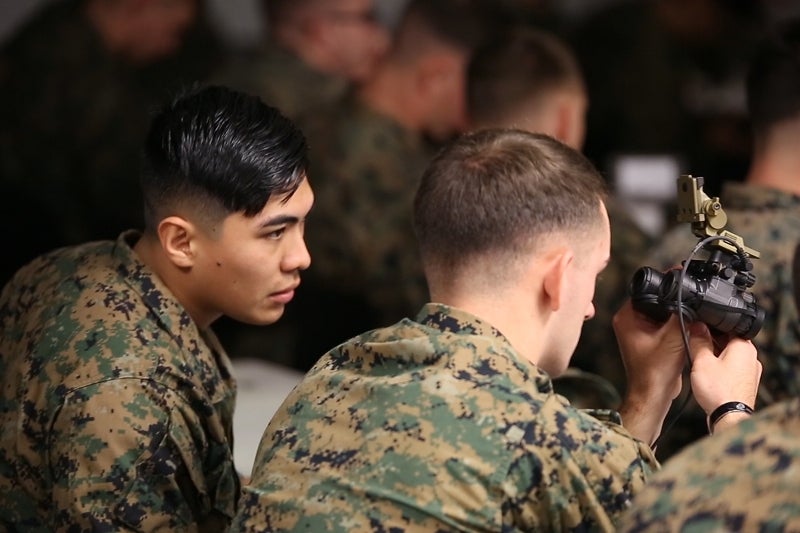
The US Marine Corps (USMC) is set to deliver an upgraded helmet-mounted night vision system to marine rifle squads in order to enhance the infantry’s lethality and situational awareness in reduced visibility.
The Marine Corps Systems Command (MCSC) expedited the procurement of around 1,300 squad binocular night vision goggles (SBNVG) through existing Defense Logistics Agency contracts.
The military has been using Army and Navy portable visual search devices since the 1990s. These systems have been regularly upgraded over the time with next-generation technology, subject to the availability of funding and technology.
Infantry Weapons programme manager lieutenant colonel Tim Hough said: “We have employed a bridge capability to give Marines the best gear right now available in the commercial marketplace. A final procurement solution will allow a larger pool of our industry partners to bid on the programme.”
The new SBNVG is a combination of two systems, a binocular night vision device, and an enhanced clip-on thermal imager.
MCSC Optics team lead Joe Blackstone noted that the new night vision system is lighter than the existing system, and offers better depth perception to Marines when they are performing movements.
Marines got their hands on the equipment and underwent training last month at Camp Lejeune, North Carolina.
Under the new equipment training, which is known as NET, marines are imparted training on the operations, characteristics, maintenance and use of the new night vision system.
Corporal Zachary Zapata, a marine who participated in the training, said: “The lethality that it’ll bring is exponential.
“With these new, having the ability to not only use thermal optics along with it, but just the entire depth perception and speed that we can operate in is going to significantly increase, as opposed to what we were able to do in the past.”
The programme office is planning to acquire an estimated 16,000 additional systems for which it is considering releasing a final request for proposals.



